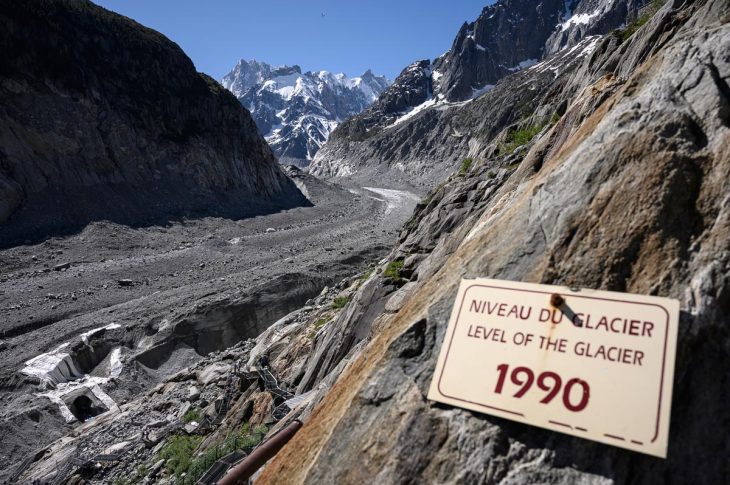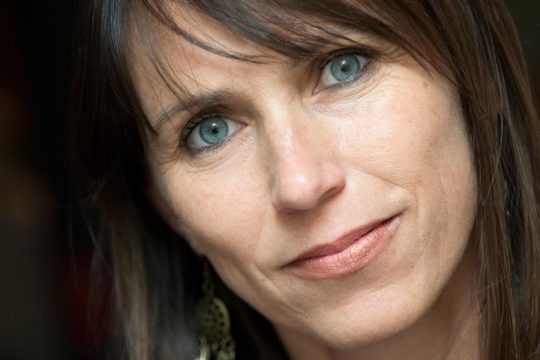PART 1: THE RIGHT TO LIFE
In a report on “climate change and poverty”, published to coincide with the 41st session of the UN Human Rights Council at the end of June, Special Rapporteur on extreme poverty and human rights Philip Alston considers that “climate change threatens the full enjoyment of a wide range of human rights”. He bases his analysis on findings in the latest work of the Intergovernmental Panel on Climate Change (IPCC) and the writings of John H. Knox, former UN Special Rapporteur on Human Rights and the Environment. Whilst in post from 2012 to 2018, Knox built the theoretical foundation for making environmental inaction a human rights violation by identifying the first case law on the subject. In a 2016 report to the UN Human Rights Council, he mentioned a 2008 ruling by the European Court of Human Rights on mudslides that killed several residents of the city of Tyrnyaouz, Russia. "It was not the authorities that caused the mudslides," he said, "but the Court considered that they nevertheless had a responsibility to take appropriate measures to protect the lives of people living under their jurisdiction."
Eleven years and a global climate crisis later, this decision seems to have caused a chain reaction in the world. According to the Sabin Center for Climate Change Law, part of the University of Columbia, there are currently more than 1,300 legal actions, including more than 1,000 in the United States, that urge states, local authorities or businesses to take action to reduce the effects of climate change, whether by reducing greenhouse gas (GHG) emissions or protecting biodiversity. The vast majority of these actions, particularly outside the United States, are brought against public actors. Most of them refer to the issue of human rights and this is becoming increasingly precise because these complaints are most often made by collectives of internationalized activists, connected to each other and influencing each other.
Duty to protect life and health
An emblematic case, because the first action of its kind to have been successful, is the one brought by Amsterdam-based environmental NGO Urgenda against the Dutch State. Federating the grievances of 886 Dutch people affected by the effects of climate change and in particular by the risk of flooding, Urgenda obtained in the first instance, on 24 June 2015, that the government be required to reduce national greenhouse gas emissions by at least 25% in 2020 compared to 1990 levels. This judgment was confirmed on appeal on 9 October 2018. (The case is not closed: the Dutch State has referred the matter to the Supreme Court, whose judgment is pending.) In his initial argument, Urgenda lawyer Roger Cox did not insist so much on the issue of human rights as on the State's "duty of care" to protect its population from the effects of climate change. In their judgments, the Dutch courts have established that this State "duty of care" is based in particular on Articles 2 and 8 of the European Convention on Human Rights (ECHR), guaranteeing the right to life and the right to respect for family life and home respectively.
This provisional success has inspired dozens of cases in Europe and around the world -- in Belgium, France, Ireland, Switzerland, the United Kingdom and even New Zealand. Several complaints, such as the one brought by the Friends of the Irish Environment against the Irish Government, or the one initiated in Switzerland against the federal State by a group of "Seniors for Climate Protection", which claims that their age makes them particularly vulnerable to the consequences of climate change, are explicitly based on the Dutch judgment and on its reference to the articles of the ECHR. In France, the climate suit known as the “case of the century”, filed on December 17, 2018 in the form of a “preliminary demand for compensation” to the French government by four environmental NGOs – Notre affaire à tous, Greenpeace, la Fondation pour la nature et l’homme and Oxfam – was supported online by more than 2.3 million people. It too is based on the articles of the ECHR. But it takes the analysis further, citing several decisions of the European Court of Human Rights between 1994 and 2008, according to which "the protection of life and health implies the protection of the environment", and affirming that States have "the primary duty to put in place a legislative and administrative framework aimed at effectively preventing damage to the environment and human health".
A fundamental right
Other remedies are even more specific on the issue of human rights. This is the case of the "People’s Climate Case", brought on 24 May 2018 before the European Court of Justice by ten families from Europe, Africa and the Pacific against the European Parliament and the European Council. Supported by the NGO collective Climate Action Network Europe, these families accuse the two EU legislative bodies of allowing too high a level of GHG emissions, thus failing to protect the people of Europe and the world from the consequences of global warming. If European GHG emissions are not reduced by at least 55% in 2030 compared to their 1990 level, they argue, the EU will no longer be able to guarantee certain rights proclaimed in its Charter of Fundamental Rights, including the right to life (Article 2), the right to security (Article 6), the right to work (Article 15) or to enjoy property (Article 17). The families were refused their request on 8 May 2019 and appealed to the European Court of Justice on 11 July.
These climate pleas, sometimes validated by judgments, have one constant: they reaffirm the right to life as the first human right - a right proclaimed in the first articles of most national and international declarations or charters relating to fundamental rights - and the obligation of States to guarantee it. But if the right to life of human beings is paramount, can it be guaranteed if the lives of other living beings are structurally threatened?
PART 2: RIGHTS OF FUTURE GENERATIONS AND NATURE
In the first instance judgment in the case of Urgenda v. State of the Netherlands in June 2015, the District Court of The Hague went beyond the strict human rights framework. It also stressed the principle of equality included in the UN Framework Convention on Climate Change, and cited its Article 3, which obliges the signatory parties to "preserve the climate system for the benefit of present and future generations".
Other climate lawsuits filed around the world since then, particularly on the American continent (United States, Canada, Colombia, etc.), have been filed by youth groups who explicitly complain about the climatic consequences of decisions made by their elders. Their reading invites us to think about the extension of fundamental rights, in particular the right to life, to human beings in the future, or even to human beings who have not yet been born.
The right of the young…
Thus, in Quebec, on June 6, 2019, the association ENvironnement JEUnesse (ENJEU) filed a request for collective action on behalf of all Quebec residents aged 35 and under, against the State of Canada. Its main argument is that "the Canadian government's gross negligence in climate change matters for more than 25 years" can be considered as an "intentional fault" whose "impact (...) on the lives of young people in Quebec" is reflected in a "violation [of their] fundamental rights, particularly the right to life and security", guaranteed by the Canadian and Quebec Charters of Rights and Freedoms. The action is also based on section 46.1 of the Quebec Charter, which guarantees "the right (...) to live in a healthy environment that respects biodiversity".
In what way are young people particularly affected? The "members of the group will almost certainly live a significant portion of their lives in a dangerous climate if it [the Government of Canada] continues on the same path. In this respect, its practice discriminates against members of the group", says the complaint. ENJEU's request for collective action, which invokes the right of the younger generations to the future, is therefore based on the principle of equality. But on July 11, 2019, the Superior Court of Quebec dismissed the application for a class action, in particular because it considers the maximum age of 35 to be "arbitrary" and because it is concerned about the involvement of non-consenting minors in the said action. ENJEU has announced its intention to appeal.
…and of “future generations”
In the United States, a similar climate action (violation of the right to life and the principle of equality in the face of the risks of climate change) was filed on 12 August 2015, one and a half months after the judgment in the Urgenda case, by a group of 21 young people, most of whom were under 18 years of age and involved in environmental associations. The plaintiffs, led by activist Kelsey Juliana and supported by world-renowned climate scientist James E. Hansen and the NGO Our Children's Trust, filed a complaint against the US President and several of his ministers in a federal district court in Oregon. Since then, the case of "Juliana vs United States" has been in the spotlight again and again as judgments and appeals at various federal legal levels have followed on its admissibility, with the Trump administration being even more hostile towards it than the Obama administration.
In this legal battle, the plaintiffs' successive requests concern the annulment of federal energy laws and the prohibition of fossil fuel infrastructure in the State of Oregon. One of their arguments is the subject of much debate: without a clear constitutional basis, they claim to defend not only their rights as "children", but also those of "future generations". This is a classic concept since the invention of the idea of "sustainable development" by the Bruntland report in 1987, but it has rarely been incorporated into binding law.
The Colombian Amazon as a “subject of law”
What appeared to be legal audacity when the Juliana complaint was filed in August 2015 has become much less so since a decision by the Supreme Court of Colombia on April 5, 2018. The latter was called upon to rule on an appeal brought "as a generation of the future" by a group of 25 young Colombians grouped around the Dejusticia association. This collective demands that their national and local governments take action to drastically reduce deforestation in the Amazon. According to them, the climatic consequences of this deforestation infringe their fundamental rights guaranteed by the Colombian Constitution, including the right to a dignified life, health, food, water and a healthy environment.
In a judgment with a very environmentalist tone - "man is part of nature", it states - the Supreme Court ruled in their favour, on the grounds that "future generations (...) will be the most affected" by the increase in temperatures linked to climate change. It ordered the national government and the local governments concerned to design and implement zero deforestation plans, as part of an "intergenerational pact for the life of the Colombian Amazon", a plan that would involve all stakeholders (State, local communities, complainants, affected communities, scientists, environmental associations, etc.).
Finally, the Court affirmed the Colombian Amazon as a "subject of law" which, as such, must be effectively protected by the Colombian government and local executives. It did so on the basis of a 2016 Colombian Constitutional Court ruling that had already proclaimed the Atrato River and the whole of nature as "subjects of law", insisting on "the importance of the environment and its interdependence with humans and the State".
By explicitly promoting an environment-centred concept of the law that would take into account the whole ecosystem, as opposed to an anthropocentric vision exclusively centred on the human being, the Supreme Court of Colombia is therefore doing much more than recognizing the rights of future generations. It affirms that the right to life of this group of young people can only be guaranteed to them if it is also guaranteed to future generations and to all living beings. This considerably extends the scope of fundamental rights.








